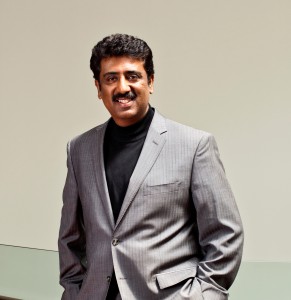Mar 26
2015
Health IT Thought Leader Highlight: Girish Navani, CEO, eClinicalWorks

Girish Navani is CEO and co-founder of eClinicalWorks, an electronic health record company exceeding in the B2B field since 1999. Under the leadership and foresight of Navani, the company is expanding its services to B2C with the launch of healow – an app for patients to easily find new doctors, schedule appointments online and access their personal health records.
Here, Navani speaks about his path to eClinicalWorks, he offers his expert insight on EHRs and their benefits to healthcare, and he speak of likely trends that will continue to change the healthcare landscape.
Tell me your story. About how you got here, how you developed your technology and the reasoning for a private company set up?
We wanted to use technology as a way to completely transform the healthcare delivery model to streamline processes, prevent errors and provide easily accessible information to both providers and patients. Not only was our primary goal to make doctors’ jobs easier by providing them with a way to operate more efficiently, but we also wanted to improve the patient experience.
I’m a strong believer in keeping my company private and concentrating on building a solid product. Selling shares and depending on investors means that they will always have a say in how we conduct our business. We use our profits to continue building our company and our products.
What about the leadership inside the company? Is it true the no employees have titles? What’s the reasoning?
I have an open-door policy, which allows the opportunity for anybody to approach me to ask questions and brainstorm ideas. Over time, I’ve learned to listen more. I’m okay with second guessing my own decisions and receiving feedback from my colleagues, even if what they say is “no.”
Yes, our employees do not have titles, but instead, the whole company is team-based with team leaders being the only leadership position. Employees’ careers grow with bigger projects. I think titles are self-fulfilling and short-term objectives that people quickly get tired of. With a team-based structure, employees can work together to achieve successful results instead of individuals striving for the next title.
What drew you to healthcare? Why does it stand out for you?
I have always worked in technology, and in 1999, I heard a lecture in Geneva about using wireless computing in healthcare and the idea of “connected healthcare” really stuck with me. I loved the idea of a doctor and patient sitting in the doctor’s office reviewing charts on a tablet instead of pieces of paper, so I wanted to build a technology that connects all parties involved in healthcare, including the doctor, patient and insurance company.